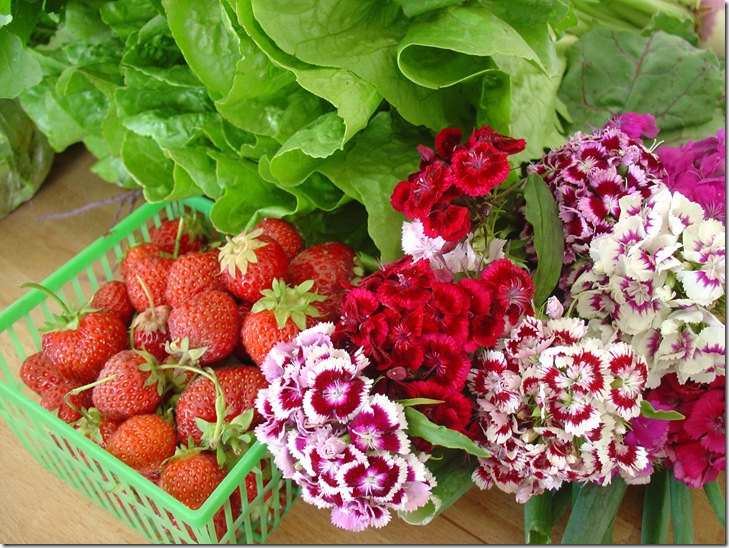We had another CSA delivery (yummy!).
While I finish eating up those strawberries, here is what Douglass St. Christian wrote in the newsletter.
I was walking in the garden with Elvina earlier this spring while she showed what was coming up, what was moving slowly, what things had her worried. What struck me at the time was both her charm and her calm. "Seasons are living things," she said, "what will happen will happen in its own time."
Economies can be living things, too, if we make the necessary effort and think them through.
We have heard a great deal over the last several years about shopping local. It is a good place to begin thinking about living economies. But it can't be the destination. Too often, when I read commentary on buy local projects, what strikes me is that the planners have simply replaced the Not-In-My-Backyard syndrome with what I call the Only-In-My-Backyard syndrome. Both are shortsighted.
We don't, can't live in isolation from the communities around us, and by that I don't simply mean neighbouring communities, but local communities around the world. Each of these local communities is our neighbour and our goal in thinking local needs to have a global perspective. Rather than working only to sustain our own community, our own local, a more effective and sustainable approach would be to think of how we can make decisions which support local living communities around the world. That could mean looking for opportunities to purchase fairly traded, sustainably produced sugar or cocoa from La Siembra, a co-op which supports local communities at home and around the world. It could mean buying your next pair of running shoes from Ethical Soles, which produces organic cotton and hemp running shoes produced in a union factory in Indonesia, which provides real local empowerment to its workers and to the local communities they live in.
Envisioning buy local as a global project allows us to work towards a broader vision of sustainability, which not only means the local living economy we live in will thrive, but we become an organic part of a global network of local living economies, which means we all thrive.
Until next time....
douglass

2 comments:
Wow - an interesting thought that makes a whole lot of sense. Thanks for sharing!
Thanks for reading!
Post a Comment